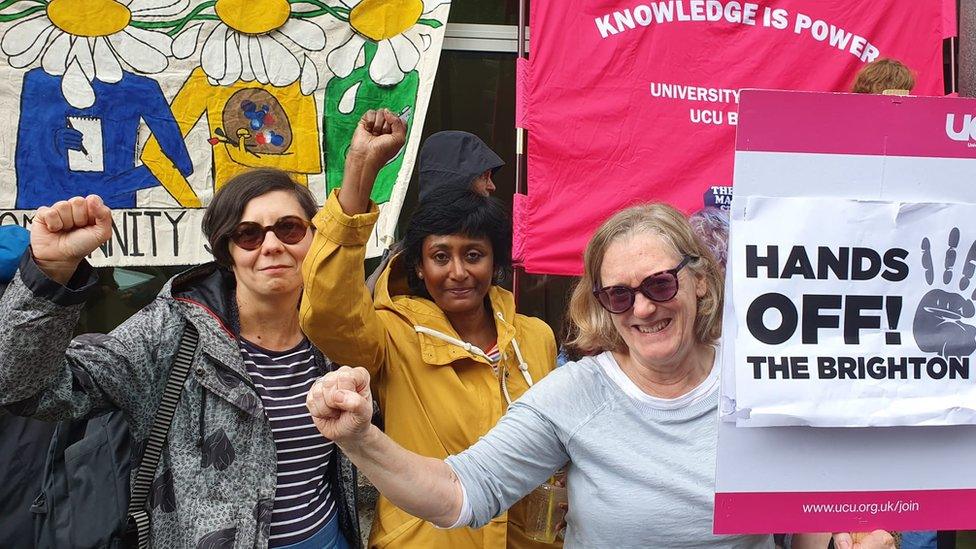Marking boycott affecting job prospects - student

University of Brighton student Sophie Bennett says a marking boycott by lecturers is affecting her job prospects
At a glance
University of Brighton student Sophie Bennett has said a marking boycott by lecturers was affecting her job prospects
University staff have reached their 100th day of strike action
A university spokesperson said the majority of students had not been impacted by the boycott
- Published
A University of Brighton student has said a marking boycott by lecturers was affecting her job prospects.
Members of the University and College Union (UCU) at the university have reached their 100th day of strike action over redundancies of academic staff.
Sociology student Sophie Bennett submitted her final piece of work in August, but is awaiting her final degree grade.
A university spokesperson said the majority of students had not been impacted by the UCU’s marking and assessment boycott.
The strike began on 3 July in response to the university’s plans for 22 compulsory staff redundancies despite reaching their target number of 80 job losses through staff agreeing to leave voluntarily, the UCU said.
The union called for a marking and assessment boycott as a result.
However, this meant some students like Ms Bennett finished university without knowing their final grade.
“In terms of jobs and graduate schemes, I haven’t been able to apply for any,” she told BBC Radio Sussex. “They’re so competitive as it is, and often require specific grades, so not having one does put you at a severe disadvantage.
“After the pandemic, it feels like ‘what have I paid for?’
"We haven’t been offered any type of compensation at all.
“All that’s been offered is a letter to prospective employers explaining what the boycott is and how it is affecting us.”
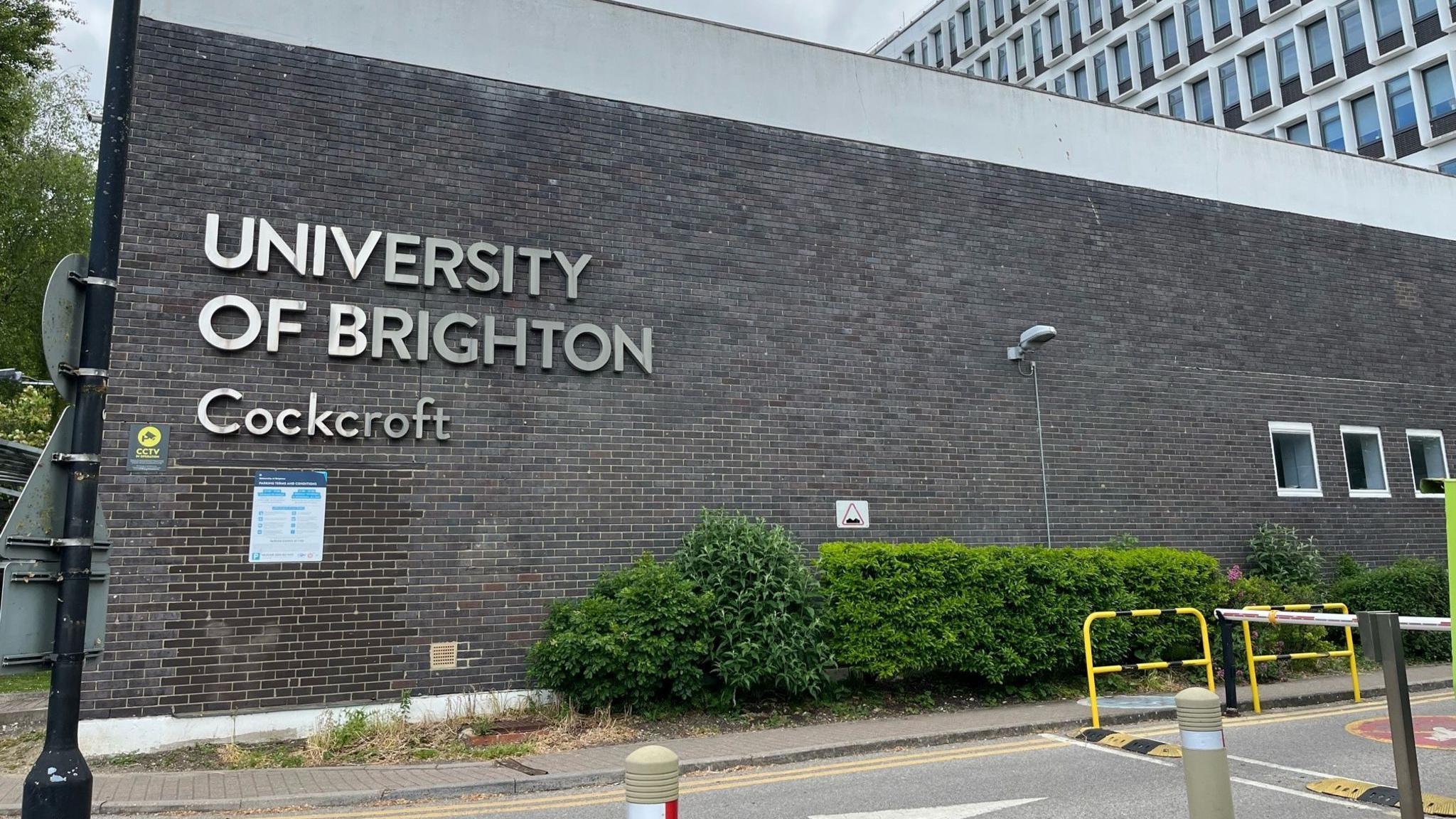
Members of the UCU at the University of Brighton have reached their 100th day of strike action
A university spokesperson said it was working with professional bodies and employers to ensure that students who graduated without all their work having been marked were not disadvantaged by the UCU’s action.
Dr Mark Abel, chairman of Brighton UCU, said while teaching restarted last week at the university, the site remained “in chaos”.
“Many subject areas are desperately understaffed, class sizes have rocketed and gaps are being plugged by people without the necessary qualifications, specialisms or experience,” he said.
Follow BBC South East on Facebook, external, on X, external, and on Instagram, external. Send your story ideas to southeasttoday@bbc.co.uk, external.
Related topics
- Published20 October 2023
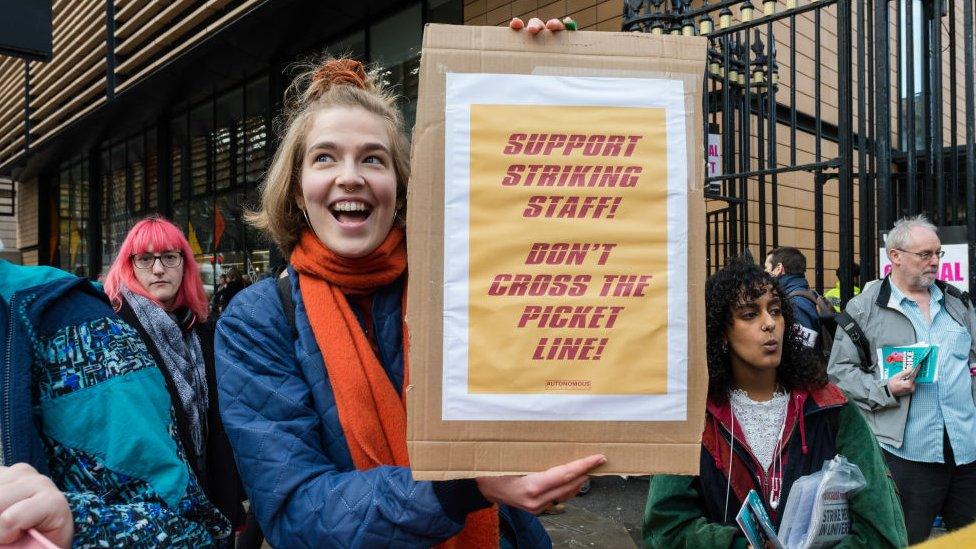
- Published7 July 2023
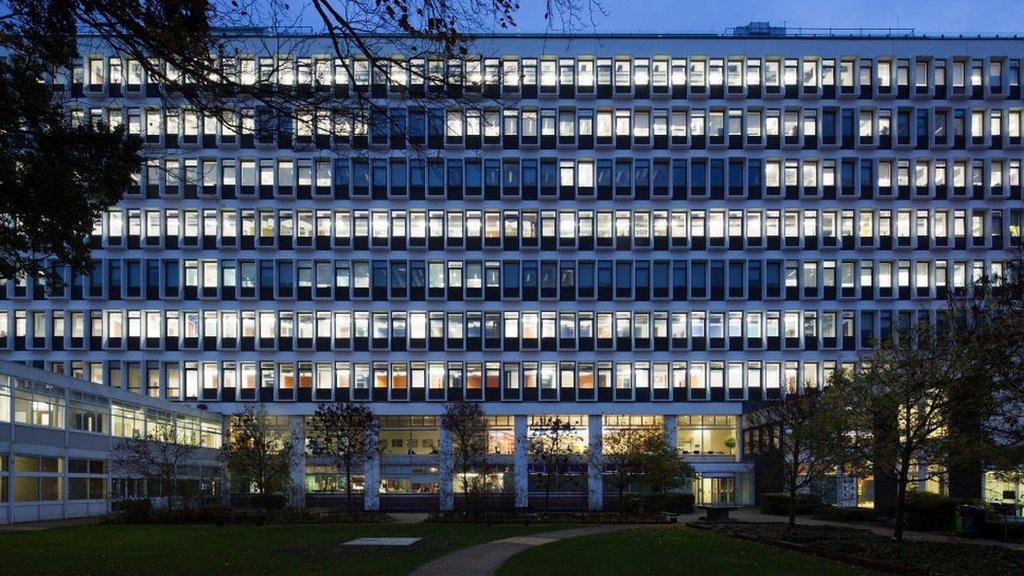
- Published25 May 2023
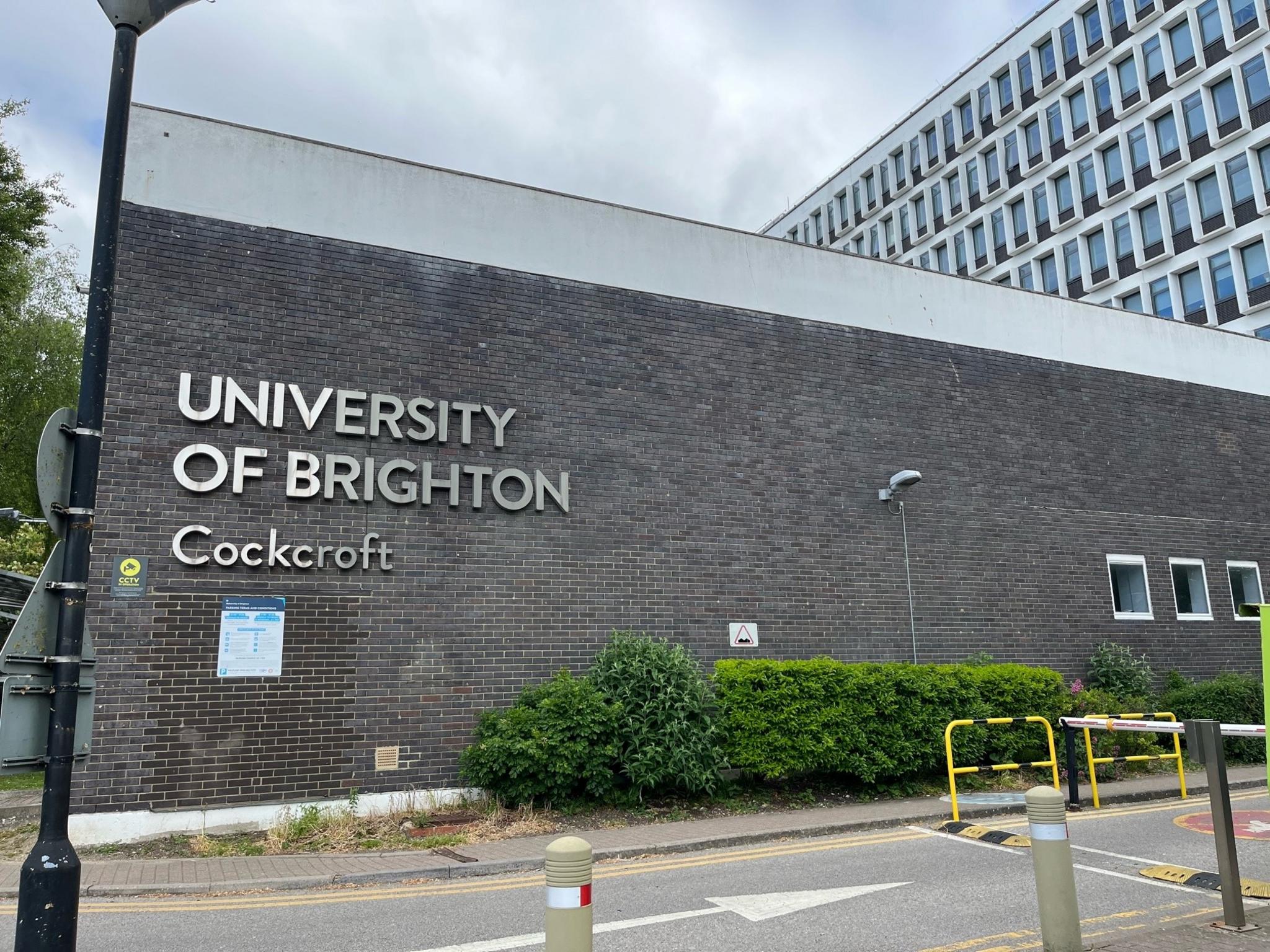
- Published24 July 2023
